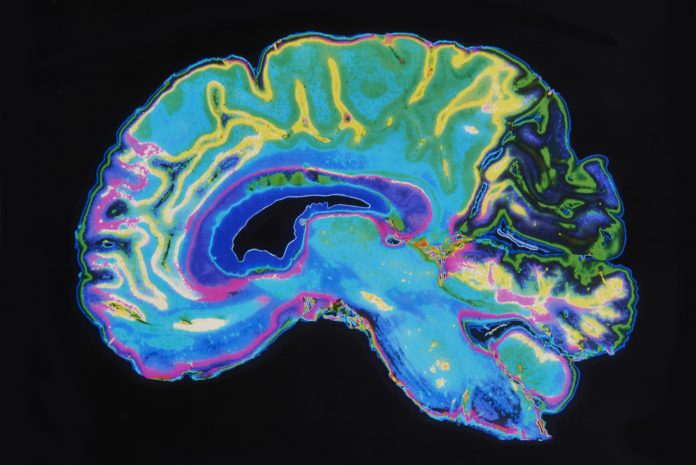Frédéric Destrebecq, Executive Director at European Brain Council, explains the importance of prioritising brain research in Europe today
Eighty years ago, Sir Charles Scott Sherrington and Edgar Douglas Adrian won the Nobel Prize for their discoveries regarding the functions of neurons. Only a few years earlier the same recognition was given to Camillo Golgi and Santiago Ramón y Cajal for their work on the structure of the nervous system. Research and innovation in the brain space have been evolving for over a century and the scientific community continues working to decode the mysteries of our brains.
Today, at least one in three Europeans face in their lifetime a brain disease – mental or neurological alike – often without a full understanding of the disease, treatment or cure – when these exist. In comparison to other non-communicable diseases, brain disorders come first in terms of their impact in terms of quality of life, disability and even mortality.
The value of innovation and the need to act now
It is estimated that brain disorders account for up to 45% of total healthcare expenditures and this share grows with the ageing population. The consequences also extend well beyond the healthcare system: the high cost of technological progress, loss of healthy life years and quality of life, the burden on health and social welfare systems, implications for labour markets with prolonged impairment, great dependency and significantly reduced productivity. Despite the need to curb this situation through novel treatments and therapies, the pace of innovation in the brain space, compared to other disease areas, is hindered by multiple factors, starting with the complexity of the brain itself.
Innovation in the brain space is crucial. Despite advances in basic neuroscience, our understanding of the brain’s function and the mechanisms behind brain disorders remains limited. Failure rates in drug development are higher in neuroscience than in other areas and new treatments often take longer to reach the market than in other disease areas and we are still striving to find cures or truly effective treatment for most.
Take the example of dementia: up to 1/3 of all Alzheimer’s cases could be prevented with specialised cognitive training and lifestyle interventions (1) if this happens before the disease onset. Delaying the average disease onset by one year could mean reducing the number of projected worldwide cases by 9 million by 2050 (2)
Engaged decision-makers willing to prioritise the brain at the EU and national levels are needed to take further steps in creating an innovation-friendly environment and sustaining scientific breakthroughs in the field of brain disorders.
New challenges for the future
Unprecedented technology innovation and medical processes are rapidly revolutionising our day-to-day lives. The scenario of the brain seems dramatic, but new perspectives are opening for the future, especially thanks to innovation.
The COVID-19 pandemic brought immense change to the brain community, severely impacting brain health, with major direct and indirect neurological and mental consequences, ranging from increases in anxious and depressive disorders as a result of social isolation to the neurotrophic effect of the virus on the brain (3). However, it has also acted as a catalyst for innovation, spurring an increase in brain[1]and health-related solutions fast-tracked by the need for solutions established during the first months of the pandemic (4), exploiting fertile ground and new solutions that had never been tried before. Among these, telemedicine certainly had a major share of the market due to necessity as lockdowns were implemented worldwide, but the new companies continued to evolve in understanding and targeting further unmet needs.
These innovations prove that reactiveness to an issue and finding solutions to a problem are possible. We must learn from this successful acceleration in innovation and push for this “emergency innovation” to live past the pandemic and become only the beginning of a long-term investment and prioritisation of innovation in research.
Experts predict that this market could quintuple in the next five years, however, joint action is needed. More investment is needed at the EU level and it is crucial to ensure that collaboration at the European and global level enhances brain research in a meaningful way for the benefit of patients and with their involvement.
Investing in brain research
“We need to foster innovation, being conscious that in brain research, innovation has to be considered as a broad and inclusive concept,” said Prof Monica Di Luca, President of the European Brain Council, at the recent Brain Innovation Days, which brought together policymakers, researchers, start-ups, patients and investors. Collaboration and engagement within the brain community are needed to create an enabling environment to foster investment in innovation in brain disorders and propose concrete avenues to remove existing barriers. Investing in brain research, avoiding fragmentation and increased collaboration among stakeholders are the only solutions in the path to improving the lives of the estimated 179 million people living with brain diseases in Europe.
References
(1) Barnes, D. E., Yaffe, K., Belfor, N., Jagust, W. J., DeCarli, C., Reed, B. R., & Kramer, J. H. (2009). Computer-based Cognitive Training for Mild Cognitive Impairment: Results from a Pilot Randomized, Controlled Trial.
(2) Zissimopoulos, J., C, E., & S, P. (2014). The Value of Delaying Alzheimer’s Disease Onset.
(3) European Brain Council (EBC). EBC Statement: The Impact of COVID-19 on Brain Health. Published 2021. Accessed February 1, 2021. www.braincouncil.eu/impact-of-covid-19-on-brain-health
(4) EURACTIV, Over 20% of digital healthcare startups emerged during the pandemic, 2021, www.euractiv.com/section/coronavirus/news/over-20-of-digital-healthcare-startups-emerged-during-the-pandemic
“The EBRA project has received funding from the European Union’s Horizon 2020 research and innovation programme under grant agreement No 825348”











